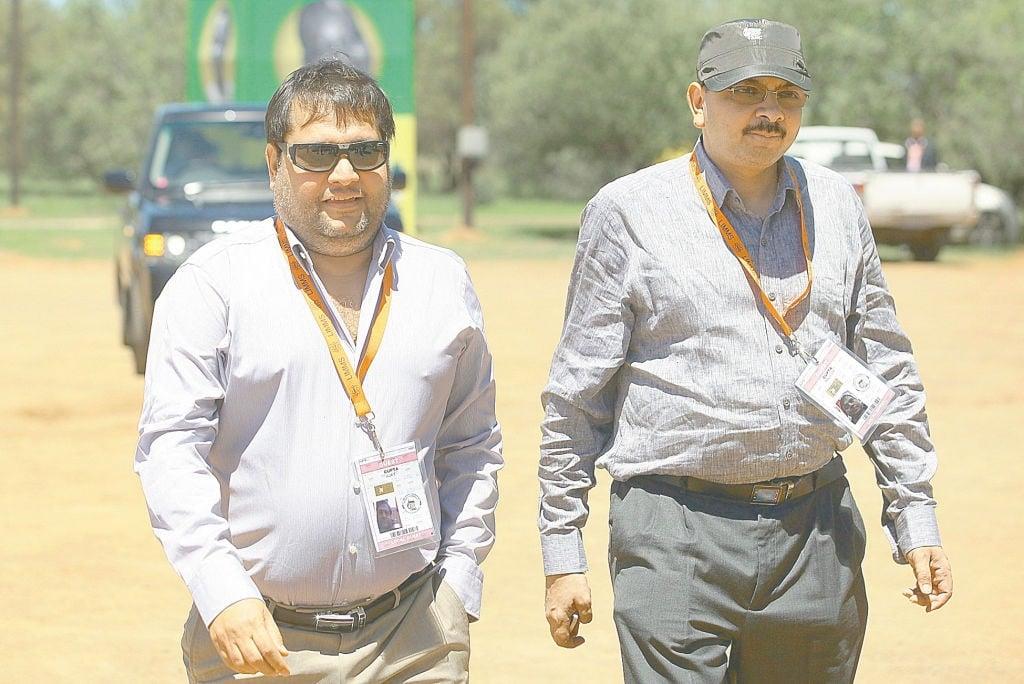Africa-Press – South-Africa. Although an attempt to have Gupta brothers, Rajesh and Atul, extradited from the United Arab Emirates (UAE) has failed, South African authorities say they are not out of options.
In a media briefing on Friday, Justice and Correctional Services Minister Ronald Lamola said his department was informed on Thursday that the extradition hearing had taken place on 13 February and that the extradition request had been denied.
The brothers are wanted by South African authorities on charges of money laundering and fraud.
Lamola said South African authorities were “bemused” by the decision, and believed they had complied with all the requirements to secure the extradition.
A team from the National Prosecuting Authority (NPA) had even flown to the UAE and taken advice from Emirati experts.
However, the extradition request was dismissed on the basis of what Lamola described as technical reasons.
The minister said his department had only seen a summary of the judgment in a note verbale (diplomatic note), which had to be translated.
A copy of the full judgment was requested.
He said that South Africa would work with Emirati authorities to appeal the decision and that there was precedent in the UAE, where extradition orders were granted on appeal.
However, National Director of Public Prosecutions Advocate Shamila Batohi said the NPA would first have to study the judgment and look at the “potential options”.
Batohi cautioned that “extradition is a complex process”.
She said while the South African government could engage with Emirati authorities, it would not be able to influence the appeal process.
This means South Africa is “completely at the mercy of the UAE to ensure they do all things possible to assist the requesting state”.
Batohi added that the red notices Interpol had issued for the Guptas lapsed once the warrants had lapsed and had been executed. There would have to be an application for new red notices to be issued.
Should red notices be reinstated or the Guptas visit a country with which South Africa has an extradition agreement, they could be arrested or extradited from there, Batohi explained.
“Corruption fights back. They are going to fight back with every possible means to make sure they are not brought back to South Africa,” she said.
Journalists also asked whether it was true that the Guptas had flown to Switzerland by using their South African passports and had applied for asylum in various countries.
There were reports that the Guptas had been spotted in Switzerland and the Central African Republic.
Advocate Doctor Mashabane, the director-general of the justice and correctional services department, responded: “We don’t have information about that and we have not been informed by those countries where they are said to be applying for asylum.”
He said they also only recently learnt that the Guptas were citizens of Vanuatu, an archipelago of small islands in the South Pacific Ocean.
He said the UAE court treated the brothers as citizens of that country.
Dr John-Mark Iyi, director at the African Centre for Transnational Criminal Justice at the University of the Western Cape, said if South Africa aimed to bring the Guptas back to face justice, its best option could lie in working with Interpol.
He explained that an extradition process requires South Africa to have an extradition agreement with the country where a fugitive is.
“South Africa will have to consider where they are located and if there is an extradition agreement in place with that state,” Iyi added.
Should the fugitive flee to a country that does not have such an agreement, it becomes increasingly difficult to have the person repatriated, he added.
However, a red notice would allow for the fugitive to be arrested in transit or on arrival in a country.
“This will have to go through the South African domestic legal process. South African security authorities will have to issue a warrant of arrest for transnational organised crime, such as money laundering,” Iyi added.
“Once the Interpol warrant of arrest is in place, they can be arrested on arrival in any country. This will depend on the domestic legal framework of the country, but they could then be repatriated to South Africa.”
However, Iyi cautioned that even this could be a complicated legal process, depending on the domestic laws of the country where they are arrested.
Lamola lambasted the Emirati authorities for behaviour that was “inconsistent” with the United Nations Convention Against Corruption, to which both nations are signatories.
“This level of non-cooperation is highly unprecedented in the arena of extradition requests and mutual legal assistance requests,” Lamola said.
“The United Emirates’ conduct does not accord with the ethos of the United Nations Convention Against Corruption. Amid what the rule of law should achieve, we believe that every state should err on the side of accountability and transparency instead of opaqueness and obfuscation.”
For More News And Analysis About South-Africa Follow Africa-Press






